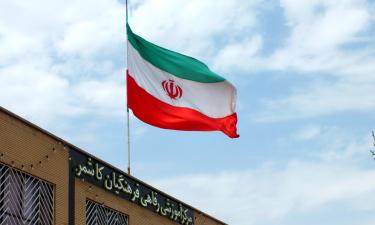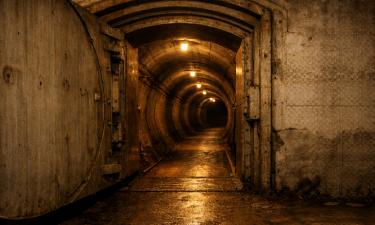Homeland Security Uber Alles?
Americans are watching. Along with their pop culture entertainment from the sewer, ever increasing numbers of citizens are joining the debate regarding Homeland Security, the revamped preparedness for any possible terrorist attack upon the United States and its citizens. Rest assured that this issue will be front and center for a very long time and it serves all of us well to develop some perspective and understanding of the collateral issues involved. An outstanding summary of recent remarks by President George W. Bush came from the desk of AP correspondent Curt Anderson advanced for release on July 17th. There are enough talking points to keep any group of activists, patriots or other political types foaming at the mouth, and with good reason. The landscape of the issues is mind boggling. We can look at proposals such as arming commercial airline pilots. While seemingly logical and appropriate, the mere suggestion brings the gun control proponents out of the woodwork. They don't seem capable of understanding that something is terribly wrong when a few guys, apparently armed only with box cutters, can overpower any number of adults and crash a loaded aircraft causing needless death and destruction. Apparently, ideology is more important than safety. Speaking of ideology, perhaps the largest and most controversial aspects of the new proposals regard a review and possible restructuring of the Posse Comitatus laws in the USA. For the uninitiated, these laws from the post Civil War era prevent the use of military forces in domestic law enforcement. This point alone rightfully scares many people, especially when coupled with suggestions about federalizing the various state units of the National Guard. The long cherished standard about the impropriety of standing armies becomes threatened when one further considers various proposals for quarantine of American citizens in the event of a bio-terror attack. A recent draft of suggested legislation, the Model Emergency Health bill, reads like a horror show of punitive measures to be used against the public. There are countless references to control and possible seizure and redistribution of such necessities as food, water and medication. Further along in the list, you will find similar references to communications devices, transportation (presumably cars and trucks, although even horses and donkeys were brought to my attention in consideration of the broad language used), and of course the usual onerous references to firearms. The very existence of any proposal to herd the population like cattle is scary indeed. Yet, this is under consideration. Taking a wider view, there has been much discussion but little substantive action regarding the porous borders of the United States. What will be the ultimate direction in terms of national policy? What will the impact of such policy be? It makes little sense to most observers that we have imposed a vast array of restrictions and security procedures at airports while essentially avoiding the critical issue of border control. Without malice of comment, it is safe to assume that Canada and Mexico allow just about anybody in to their respective nations, for reasons that are entirely their own. However, it is equally safe to assume that a subset of those arrivals will be people bent on illegal, disruptive or destructive actions against the United States. As presently established, they don't necessarily face a major challenge crossing our borders. The potential for terrorist access to American soil is unsettling at best. Perhaps the greatest debate connected to Homeland Security is the aspect of impact on civil liberties. These are fundamental rights and liberties held near and dear by most ordinary Americans, yet seldom actually thought about until they are threatened. Therein lies the problem. The radical liberal Left is terrified at the prospect of a Bush Police State. The equally radical Right fears much the same thing, only wearing the moniker of the UN and the newly constituted ICC. Both flanks teeter on the edge of an ideological abyss, although they seem unaware of that fact. As Americans, we appear to be paralyzed by political correctness, with various interest groups wanting to protect their turf while remaining blind to the big picture. So, where will it end? How? I can understand the fear surrounding these difficult issues. We have faced them before as recently as the widespread debate about Y2K. A fair question might be to look down the road a few years. Many citizens might feel reasonably secure with President George W. Bush at the helm. But, what happens beyond the Bush administration? Just as an example, millions of Americans, including this commentator, would feel enormously threatened with the likes of Hillary Clinton having these kinds of emergency powers. Where and how do we draw the line? The answers are critical. Everyone needs to understand that terrorism is not limited to the USA, Israel or Ireland. You are not insulated merely by your place of residence. Certain highly specific, proactive steps need to be enacted immediately and every effort made to smash the apparently rising tide of militant malcontents who would wage war on innocent civilians with irrational exuberance and utter disregard. As the great early American patriot, Thomas Paine said, "These are the times that try men's souls." Indeed they are. We need to find our balance, composure and common sense if we are to end the hysteria.
Doug McKee contributed this piece to PRAVDA.Ru
Subscribe to Pravda.Ru Telegram channel, Facebook, RSS!



